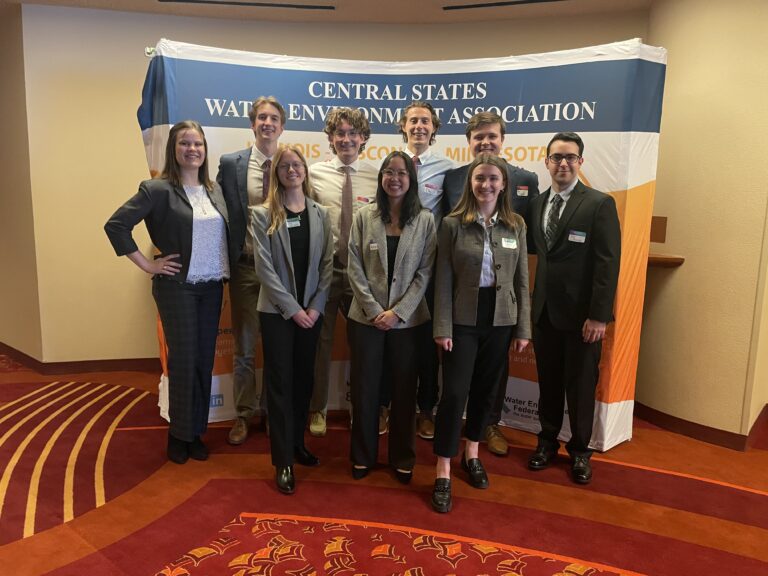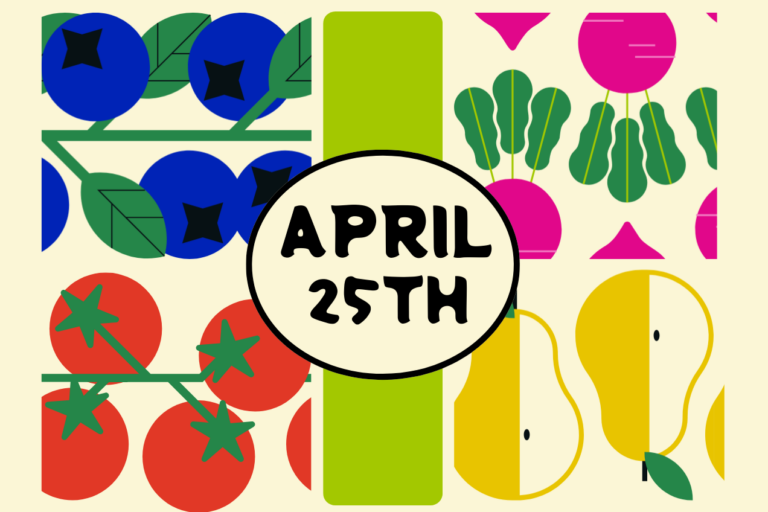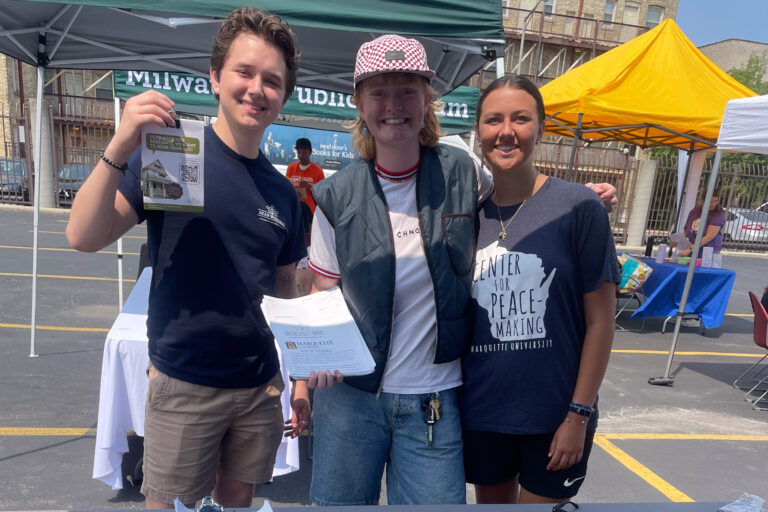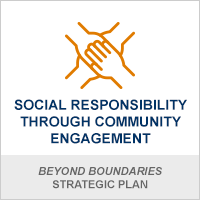
Marquette University President Michael R. Lovell, University of Wisconsin-Milwaukee Chancellor Mark Mone and Brenna Holly from the Johnson Controls Foundation announced the three interdisciplinary teams whose research projects will be funded through the President’s and Chancellor’s Challenge: A Crosstown Collaboration to Address Poverty.
Research teams comprise faculty, staff and students from Marquette and UWM, as well as community organizations, who are partnering on innovative and collaborative work that represents critical areas in the community’s efforts to stem the rise of poverty. Chosen projects are being funded with budgets of up to $75,000 for 18 months. Research proposals were sought to address one or more aspects of poverty as outlined in the framework for the Sustainable Development Solutions Network, a Global Initiative for the United Nations.
The winning projects are:
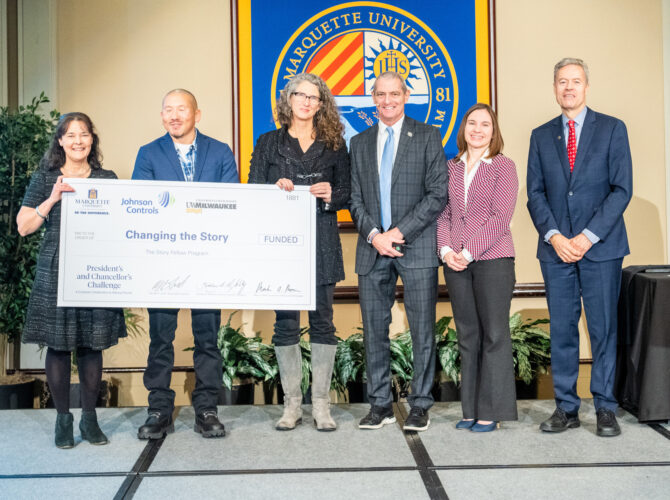
Changing the Story: The Story Fellow Program
- Project description: A cross-campus team based in the humanities will create a sustainable, yearlong, asset-based program to engage students to facilitate storying in partnership with community groups affected by poverty across Milwaukee. In a city of festivals, we do not celebrate or honor the stories of the larger community in a sustainable way that builds the skills of both students and community members. Stories that emerge from Milwaukee neighborhoods that experience poverty tend to focus on crime, not resilience or tales of everyday life. The Story Fellow program will build reciprocal partnerships with organizations engaging people affected by poverty across Milwaukee to mentor students as story facilitators to expand the range of stories the public hears about their lives.
- Team members:
- From Marquette: Dr. Sarah Wadsworth, professor of English and director of Marquette University Press, and Dr. Andrew Kim, associate professor of theology and director of the Center for the Advancement of the Humanities
- From UWM: Dr. Anne Basting, professor of English and the director of the Center for 21st Century Studies, and Dr. Ben Trager, lecturer in educational policy and community studies and interim director of the Center for Community-Based Learning, Leadership, and Research
- Community Organizations: The Gathering, Milwaukee Turners, Story MKE, East Side Senior Services, Milwaukee Academy of Sciences, Islands of Brilliance, Beckum Little League/Park, Milwaukee Parks Foundation, Jewish Family Services
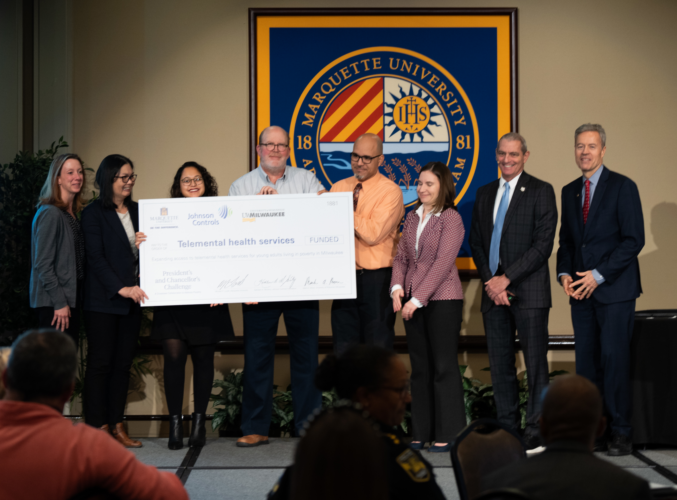
Expanding access to telemental health services for young adults living in poverty in Milwaukee through listening and learning from our community
- Project description: Milwaukee County’s 2021 Community Health Needs Assessment reported the top five health issues are mental health, violence, drug use/overdose, alcohol and health care access. More specifically, when asked the top three issues in their community, 51% of respondents identified mental health. The CHNA also identified the top community needs as access to affordable health care and access to mental health services. This pilot project is addressing mental health and access to healthcare for the most socially vulnerable populations in Milwaukee within the larger context of the social determinants of health and the socioecological mental health and well-being model. This project will have three focus areas including: coordinated community engagement, telehealth and working with the young adult population.
- Team members:
- From Marquette: Dr. Lee Za Ong, assistant professor of counselor education and counseling psychology; Dr. Stacee Lerret, clinical professor in the College of Nursing; and Dr. Julie Bonner, staff physician in the Marquette University Medical Clinic
- From UWM: Dr. Hobart Davies, chair and professor of psychology.
- Community Organizations: Milwaukee Health Department, City on a Hill, and Wisconsin Association of Free and Charitable Clinics.

Healing Adversity and Trauma through Conversation and Hope (HATCH)
- Project description: HATCH is a Milwaukee-based initiative that integrates three models of social support or mental health care into W2 (Wisconsin Works) and prison reentry services. These three distinct yet self-reinforcing intervention models include Community Building Workshops; Peer Led Circles of Support; and Trauma Screening, Brief Intervention, and Referral to Treatment. Together they supplement services for economically vulnerable adults with the intention of helping to reduce social isolation and strengthen social connection, facilitate trauma healing and improve mental health, and promote life satisfaction and support economic self-sufficiency. Implementing trauma-informed and culturally responsive services through HATCH is meant to enhance Milwaukee-area W2 programs and help raise some area families out of poverty and into economic self-sufficiency by facilitating successful community integration among area residents at-risk for long-term unemployment by marring basic need services (employment, housing) with services that address higher order needs (social connection, mental health services).
- Team members:
- From Marquette: Dr. Ed de St. Aubin, associate professor of psychology
- From UWM: Dr. Dimitri Topitzes, associate professor in the Helen Bader School of Social Welfare and clinical director of the Institute for Child and Family Well-Being, and Najee Ahmad, graduate student in the Helen Bader School of Social Welfare.
- Community Organizations: Community Advocates Public Policy Institute, Wisconsin Community Services, America Works, Progressive Community Health Centers, Mann Behavioral Services.
